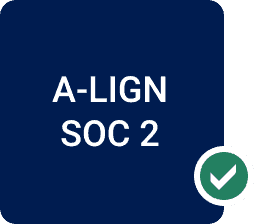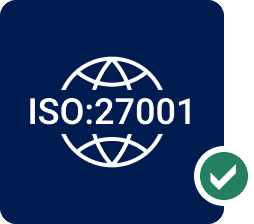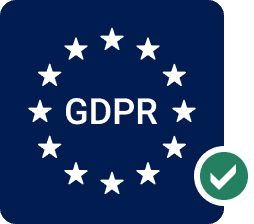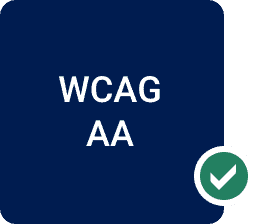


Why Pinsight
Trusted Partner in Assessing
and Developing Leaders
Join our mission to bring fairness to leader selection, development, and succession. Let’s start the conversation!
Cultivating Leadership Talent in Global Enterprises





The Pinsight Team Is Dedicated to Scientific Rigor, Evidence and Fairness
Our Leadership Team
Martin Lanik, PhD
CEO and Founder

Amy Huber, MS
Client Success

Ched Webb, BSIT
Security and Data Privacy

Attila Jakab, MS
Software Development

Martin Lanik, PhD
CEO and Founder

Amy Huber, MS
Client Success

Ched Webb, BSIT
Security and Data Privacy

Attila Jakab, MS
Software Development







We Are Committed to High Quality
Easy and Seamless Implementation
Frontline managers oversee staff and coordinate tasks to align daily operations with upper management strategies, focusing on execution over long-term planning. Most begin their managerial careers here. Ambitious and Organized are key traits for success at this level.
Effective in Supporting Your Goals
We are committed to helping you achieve your goals. Our client success team provides expert consultation to ensure you meet your objectives efficiently and effectively.
Excellence in Every Client Interaction
Our goal is to exceed your expectations at every turn. We pride ourselves on our attention to detail and our unwavering commitment to excellence. Whether it’s a simple query or a complex challenge, we are here to provide the highest level of support and ensure your complete satisfaction.
Trusted Partner to Drive Successful Implementation
79
Net Promoter Score
92%
Satisfied with Support
Strategic Consultation

Partner with us to develop a robust talent assessment strategy that aligns with your organizational objectives.
We provide expert guidance in designing tailored solutions and managing change. Our team is dedicated to bringing your assessment vision to life by understanding your goals and crafting a strategic plan to achieve them.
Organizational Upskilling

Learn to integrate these talent insights throughout your organization, supporting individual and organizational goals.
Elevate your organization’s talent assessment capabilities by creating champions and advocates. Our comprehensive ‘train the trainer’ sessions, empower your team to interpret assessment results effectively.
Adoption Support

Collaborate with us to optimize your use of our solutions and platform to achieve your desired outcomes.
We offer seamless support to ensure smooth technology experiences for all participants. Our client success team guides you to leverage key features and functionality for maximum efficiency and scalability.
Pinsight’s Award Winning Solutions Are Trusted by Talent Leaders and Industry Experts
BRANDON HALL GROUPTM
Technology Excellence Award
HR TECH AWARDS
Talent Acquisition
“Partnering with Pinsight has been one of the most strategic talent planning decisions I have made. Not only do the tools and resources help elevate our leaders’ skills and abilities the support from the Pinsight team is clearly industry leading. CEO said ‘Pinsight is not a typical vendor relationship or presentation. They exceed expectations.’ Anyone who is looking for assessment support, selection guidance and criteria, or leadership development should absolutely invest with Pinsight.”

Sarah Jackson
Chief People Officer

“Transitioning to virtual assessments with Pinsight brought relief to our clients and seamlessly integrated technology with our custom solutions. The cost savings were significant, scheduling became more efficient, and the user-friendly platform enhanced the participant experience. With strong data security, this partnership empowers us to deliver innovative, secure solutions that meet evolving client needs.”

Beth Doladee
Managing Consultant, Leadership Development

“Pinsight has been a game-changer for us, providing valuable insights into candidate potential and cultural fit for our executive hires. The customizable assessments align perfectly with our values, helping us attract high-potential leaders who are well-suited to our dynamic environment. With Pinsight, we’ve streamlined our evaluation process, ensuring every hire makes a meaningful impact on our success. Pinsight is an essential partner in building our team!”

Kristen Baily
Director of Human Capital

“What I value most about Pinsight support as a customer is the quick response time to any inquiry or urgent request. I truly feel valued as a customer due to how Pinisight prioritizes our suggestions and concerns. For us, having access to technical support and scientific evidence regarding the latest Pinsight updates is crucial, and with Pinisight, we have the support we need.”

Catalina Ortiz Rincón
Leadership Development Analyst

“Assessments by Pinsight provide job-based objective evidence to help inform hiring managers decisions and determine top areas for growth while informing employees of their current capabilities.”

Collin T. Hawkes
Senior Lead Psychologist

“When an organization makes a mishire for an entry level role, the overall impact to the company is minimal; however, hiring the wrong executive can create long-lasting negative effects to the organization and potentially the bottom line. Pinsight aims to help employers reduce that risk by offering modern leadership selection tools that drive higher quality, lower bias, and greater retention overall. ”

Ben Eubanks
Chief Research Officer

“When selecting assessments to support our talent decision-making, we look for tools that enable objective decisions, backed by trusted evidence, a global benchmark, and comprehensive, user-friendly individual and group reports. Pinisight is the assessment that brings all of these requirements together in one platform, contributing to effective decision-making.”

Catalina Ortiz Rincón
Leadership Development Analyst

“Pinsight’s succession planning solution aims at helping organizations discover high-potential employees and equip them with the skills they need to become leaders in the future. Using skill assessments backed by behavioral science, Pinsight provides objective and unconscious bias-free data about top talent. Using this information, you can design a personalized leadership development plan to help them further their skills and grow into competent leaders.”

Phil Strazzulla
Founder

“Pinsight has become essential to our talent management strategy at Middle Ground Capital. The tailored assessments offer deep insights that support employee growth and retention, fostering a culture of self-awareness and improvement. By aligning each team member’s development with our values and goals, Pinsight has empowered our people and maintained our retention rates far above industry norms. It’s a critical part of our approach to nurturing top talent.”

Kristen Baily
Director of Human Capital

“Pinsight’s Work Styles Profile, recognized with Gold in the Brandon Hall Group™ Excellence in Technology Awards, identifies leadership potential and aligns leaders with the right leadership level, matching their natural strengths and growth potential. Backed by data from 13,000 leaders, it helps build a future-ready pipeline. Leaders identified through this process are proven to be significantly more likely to advance, excel as top performers, and retain their teams.”

Roberta Gogos
Vice President,
Principal Analyst

“Pinsight’s leadership platform is a powerful tool for supporting career and talent decisions. It helps address development needs, visualizes new talent for critical roles, and offers valuable guidance to managers in making informed decisions. Pinsight assessments provide accurate insights, build client trust, and drive leadership improvement.”

Carolina Martinez Figueroa
Director of Leadership Development

“We are what we practice the most. Leaders are no exception, and they need to take this rule to heart if they are going to connect with their employees. The Leader Habit formula by Dr. Martin Lanik serves as the foundation of Pinsight’s leadership development—a refreshing approach that finally hits the bull’s-eye on what needs to be done to make leaders more effective.”

Michael Rochelle
Chief Strategy Officer,
Principal Analyst

“Pinsight enables the identification of leadership gaps and guides participants on how to close them. Participants view Pinsight as a strategic ally in their development process, using their results as motivation for improvement and gaining insight into the ‘how’ behind their growth, with the support of their leaders and organizations.”

Catalina Ortiz Rincón
Leadership Development Analyst

“Pinsight has been amazing in the pivoting to meet our needs during a fast ramp up. The team is really great, driving the process with excellence.”

Michelle Taylor
Senior Sales Training Manager

“Pinsight went above and beyond to help us create customized trainings per teams to understand team capability and opportunities of competency development, firm-wide. Furthermore, Pinsight listened to our competency matrix framework project and supported our specific needs, which played a huge role in the project implementation. Pinsight is our best partnership and our team loves Pinsight!”

Kristen Baily
Director of Human Capital

“Pinsight provides an excellent process from start to finish, where feedback is crucial for successful development. It offers a unique perspective on development needs and competencies, serving as a clear, practical guide to focus time, energy, and resources”

Marta Amaya López
Development and Training Consultant

For the Past 16 Years, We Have Supported Talent Initiatives At More than 100 Companies
94%
of participants viewed the Pinsight simulation as more interesting, rewarding, challenging, and insightful than other assessments.
Healthcare Enterprise
$4.3B in revenue
5k employees
13%
increase in the quality of hires for key roles was achieved after six months of implementing Pinsight into the selection process.
Fortune 500 Tech Company
$24B in revenue
45k employees
100%
free of adverse impact against women, individuals over 40, and racial minorities during the selection process.
Fortune 100 Insurance Firm
$47B in revenue
56k employees
6x
higher employee retention was found among high-scoring leaders on the Pinsight assessment.
Fortune 500 Tech Company
$24B in revenue
45k employees
43%
decreased turnover was achieved in leaders who participated in the Pinsight program compared to the overall population.
Educational Institution
$2.5B in revenue
10k employees
14%
increase in employee engagement scores was achieved among participants after completing the Pinsight program.
Educational Institution
$2.5B in revenue
10k employees
97%
of participants would recommend Pinsight to others to improve their leadership performance.
Healthcare Enterprise
$4.3B in revenue
5k employees
11%
increase in level of competence among leaders who completed the 12-month Pinsight program.
Healthcare Enterprise
$4.3B in revenue
5k employees
79%
of participants improved their leadership skills in a post-test after 12 months of Pinsight development.
Healthcare Enterprise
$4.3B in revenue
5k employees

SOC 2 Type II Certified
We adhere to rigorous standards for security, availability, and confidentiality.

ISO27001:2022 Certified
Our platform meets international standards for information security management.

GDPR Compliant
We ensure your personal data is processed transparently, fairly, and securely.

WCAG AA Compliant
We are committed to providing accessible solutions for all.
Enterprise Ready to Meet Information Security, Data Privacy, and Accessibility
“We take information security and data privacy very seriously and protect your data with the best-in-class cybersecurity and business continuity programs. These include SOC2, ISO27001, GDPR, and others.”

Ched Webb, BSIT
Security and Data Privacy Officer



Pinsight Solutions Are Available Anytime, Anywhere
Globally Scalable
Pinsight solutions are available anytime, anywhere, and at any scale. Designed for rapid virtual deployment, our assessments are available in multiple languages.
Our consultants working from multiple time zones support global availability.
24/7
Worldwide Availibility
40
Countries Serviced
12
Languages Deployed
Globally Scalable
Pinsight solutions are available anytime, anywhere, and at any scale. Designed for rapid virtual deployment, our assessments are available in multiple languages.
Our consultants working from multiple time zones support global availability.
Featured Consultants

Lisa Niederman, MA, LMFT
Colorado, USA

John Henderson, PhD, SPHR
Texas, USA

Ameetha Garbharran, PhD
Canada

Andres Escallon, MA
Columbia

Janice Caplan, MA, MBA
United Kingdom

Linda Hall, MA
South Africa
Let's Design a Solution Perfectly Tailored to Your Organization's Needs

Consult with our design team
who is ready to support your
vision and goals
Brandy Benak, MA
Principal Solution
Design Consultant
Select Leaders for Director & Vice President Level Roles
Simulation-based selection assessments created by Dr. Martin Lanik ensure a top-notch candidate experience for senior leaders.
Assess Readiness of Leaders for Mid- and Senior Level Roles
Using Pinsight readiness assesssments to inform your talent decisions minimizes adverse impact and promotes fair practices.
Prepare Leaders for Key Transitions with Development
Targeting mid- and senior-level leadership transitions, our realistic simulations and hyper-personalized development accelerate growth
Match Leaders to Roles that Fit Their Strenghts and Potential
Expedite your selection process by identifying leaders who align seamlessly with your hiring needs and organizational culture.